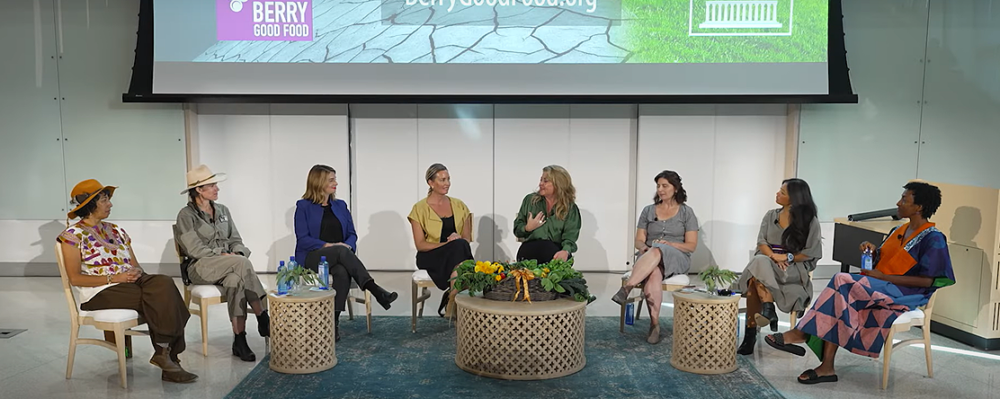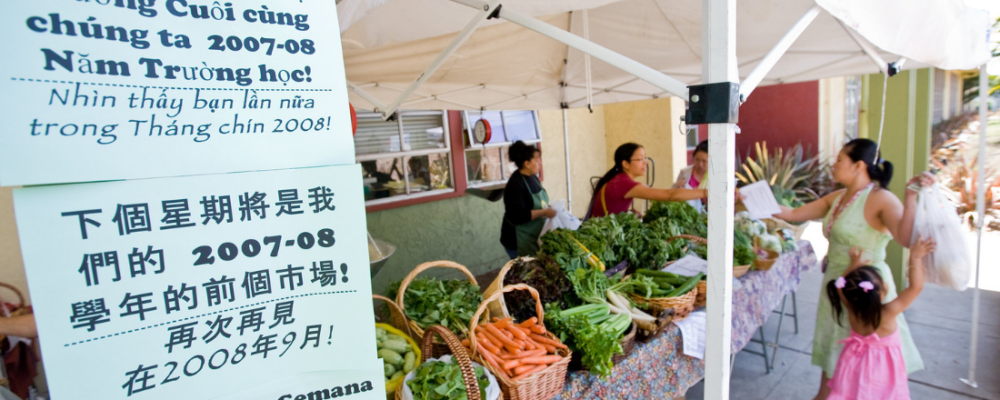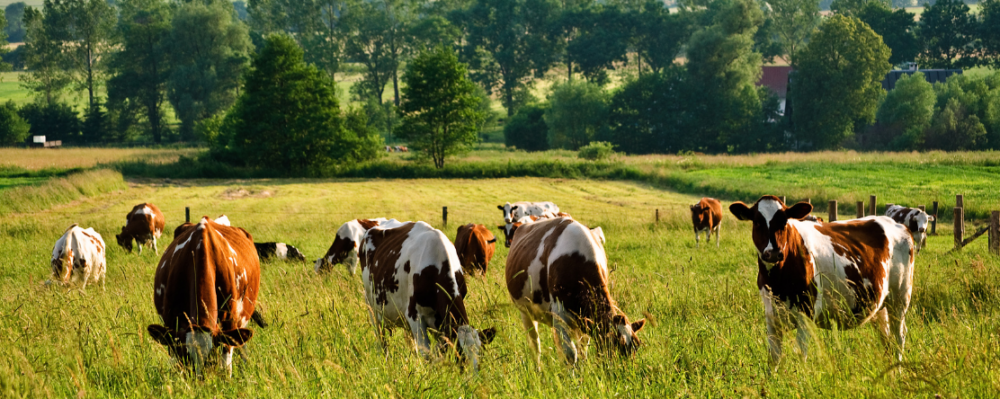
Podcast: Flipping the Table
-
Focus Areas
Capacity Building & Leadership, Healthy Communities -
Issues
Nutrition & Food Security, Population Health, Rural Health -
Expertise
Coalition & Network Building -
Programs
Roots of Change
Honest conversations about food, farming and the future
Food production causes more damage to the planet than any other human activity, contributing to global warming, lost biodiversity, degraded soil, water, air and rural economies and epidemics of diet-related disease.
This podcast, hosted by PHI’s Michael Dimock, presents dynamic and enlightening conversations with people who are flipping the table to create new ways to feed the world. Their ideas will inspire action and positivity in our challenging times, and appeal to listeners and sponsors who strive to create healthy and resilient people, communities and economies.
Michael Dimock is director of PHI’s Roots of Change, a think tank-and-do tank working to ensure emergence of a sustainable food system in California.
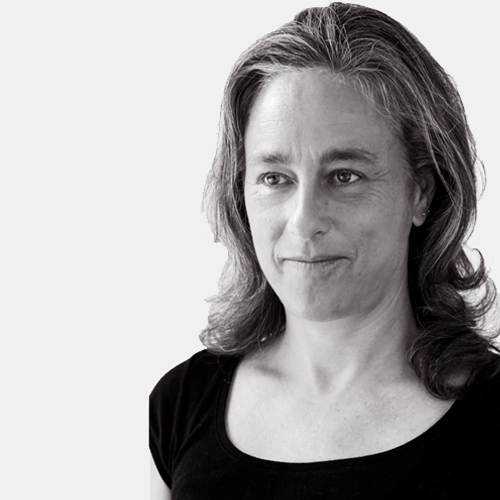
S6 Ep 7 - Lisa Hamilton, Author of The Hungry Season & Deeply Rooted, on the Strength and Power of Uncommon Agrarians
Michael talks with Lisa Hamilton, a great chronicler of uncommon agrarians, and the author of the new book, The Hungry Season. Agrarians are those who live from working in agriculture. With only 2.2 million agrarians are less than 1% of the US population. These few feed our nation and much of the world. An even smaller percentage of those few farm or ranch outside the mainstream, the conventional commodity system.

S6 Ep6 - Dairy in California: Opportunities and Challenges Today and Tomorrow
Nutritionist and leader of the Dairy Council of California, Amy Delisio and dairy
farmer from Humboldt County, Cody Nicholson Stratton, dialogue with Michael around the opportunities and challenges related to nutrition and the environment faced by California’s gargantuan dairy industry.
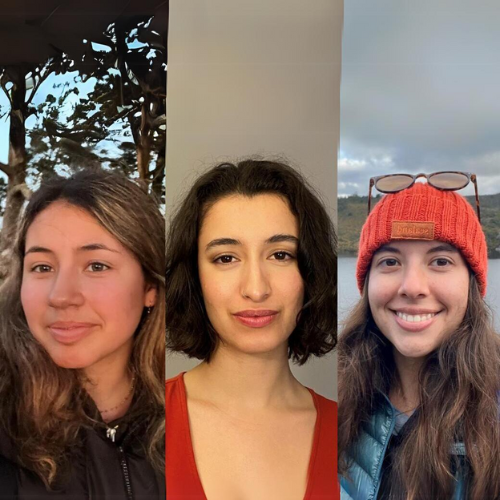
S6 Ep 5 - Three Gen Zers Speak their Minds About Food, Farming and the Future
In this episode, host Michael Dimock speaks with three members of “Gen Z” to explore how the passions of their generation might be challenged to in efforts to change our food and farming system.
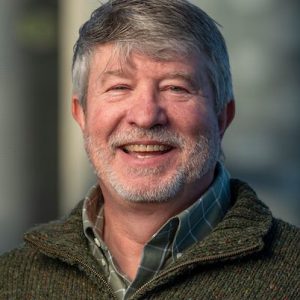
S6 Ep 4 - From the Rice Fields of California One Sees the Future of Agriculture
Tim Johnson, CEO of the California Rice Commission, shares how rice growers are modeling the future of agriculture by delivering a fabulous array of ecosystem services, wealth creation and delicious, healthy food for California and the world.
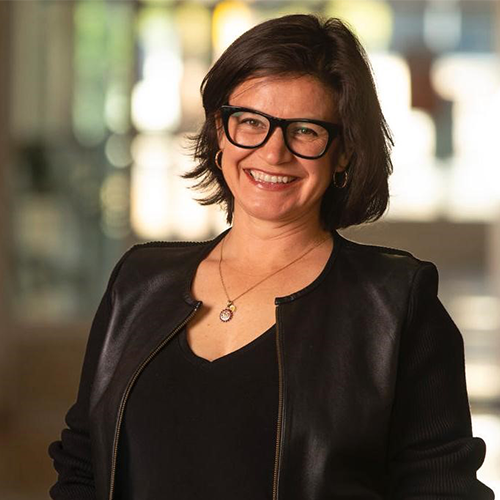
S6 Ep 3 - Alegria De La Cruz: a Weaver and a Warrior for Equity and Justice
Alegria De La Cruz has a history of creating spaces and moments for farmworkers and other historically marginalized Brown and Black people to engage the powers that be: employers, judges and policy makers. She does this with grace, impeccable logic and a desire to be fair with all stakeholders. She and Michael reveal the story of her incredible journey from Delano, California and the center of the United Farmworkers leadership to Sonoma County, where she directs the Office of Equity at a turbulent time when grape growers and farmworkers are deeply polarized.
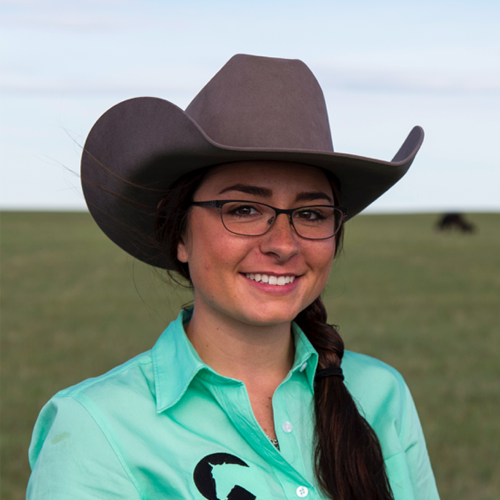
S6 Ep 2 - Kelsey Ducheneaux-Scott: An Inspiring Indigenous Millennial Working to Heal our Land Through Stewardship
As 30-year-old Native American rancher, mother and nonprofit leader, Kelsey Ducheneaux-Scott reflects the power of the millennial generation born between 1981 and 1996. Indigenous knowledge, the future of food and her role in the film Common Ground are deeply explored in this episode.
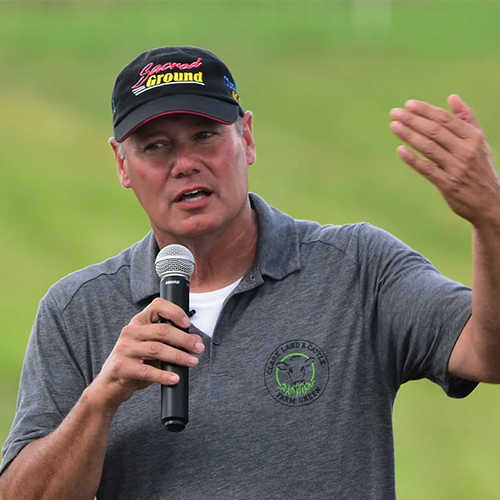
S6 Ep1 - Rick Clark, a Large-Scale Midwestern Regenerative Organic Farmer from Indiana
A 5th generation commodity crop farmer from Indiana, the Heartland of America, Rick Clark had an awakening during a one-inch rain event in 2007 that washed topsoil from his fields. That moment spawned a ten-year journey during which Rick created rich healthy soil that captures carbon and holds water, diversified his crops and increased his profits. This success placed him at the center of the film Common Ground. As the film says, Rick “cracked the code” of large-scale organic regenerative farming.
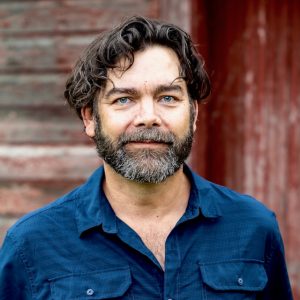
S5 Ep 12 - Jim Kleinschmit of Other Half Processing and the Growing GRASS Climate Smart Commodities Partnership Project
Farm boy and entrepreneur Jim Kleinschmit started a company called Other Half Processing to ensure that the hides and other byproducts from cattle and bison production are fully utilized. When USDA began its funding campaign to promote regenerative agriculture, he hatched an idea that has bloomed into a $35 million project to build lucrative markets in Europe and beyond for hides and more livestock byproducts.
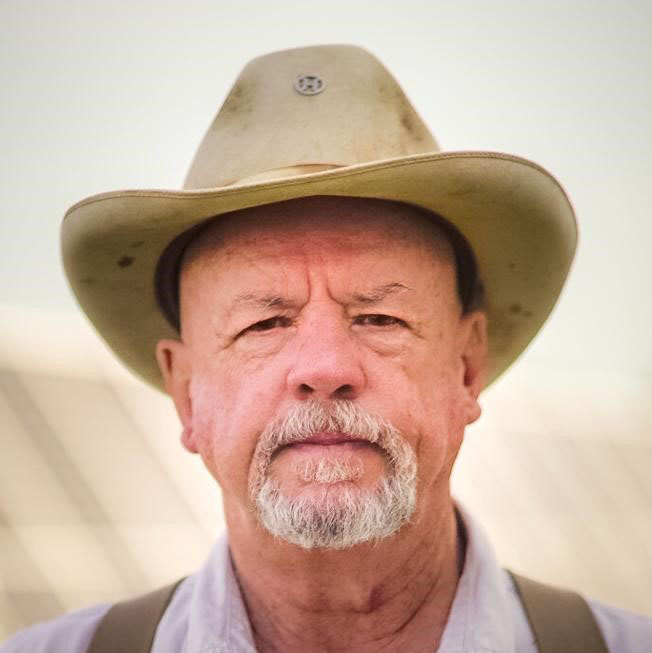
S5 Ep 11 - Will Harris Regenerates An Entire Community Through White Oak Pastures
After decades of economic decline around the Harris family’s farm, Will experienced an epiphany that led to a journey to what we now call regenerative agriculture. His story is about a pioneer’s
perseverance, love for animals, the land and a community. His example could transform rural America.

S5 Ep 10 - Filmmakers Josh and Rebecca Tickell Share Their Story of the Making of Common Ground and Why Regenerative Agriculture Must Become the Norm
Josh and Rebecca Tickell produced and directed the newly released film, Common Ground. It is a compelling look at the expanding acceptance of regenerative agriculture as an antidote to many of the challenges faced by farmers, ranchers, consumers and policy makers. Josh and Rebecca share about why they included a powerful diversity of voices and perspectives to compelling convey their hopes for regenerative agriculture. They describe it as a love letter to all our children as well as a call to the nation’s farmers to embrace regenerative agriculture as the future.
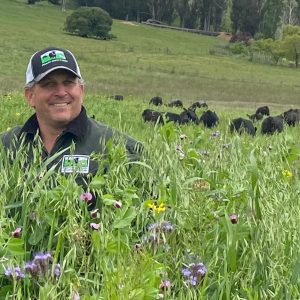
S5 Ep 9 - The Long Strange Trip of Loren Poncia of Stemple Creek Ranch
Hear how Loren Poncia, a former Monsanto sales rep, became a model
regenerative rancher. He and his wife faced the omnivore’s dilemma to transform the family dairy into a multimillion dollar iconic grassfed organic meat brand.
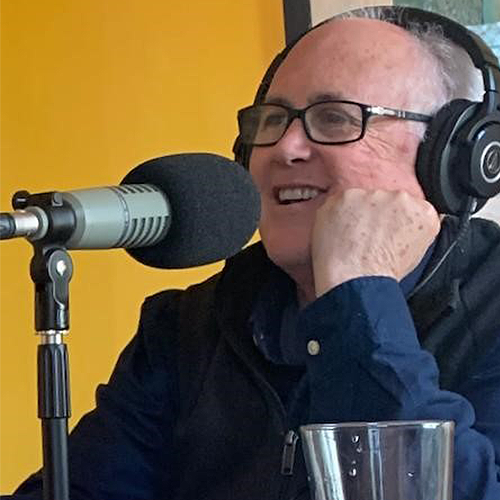
S5 Ep 8 - The Good Food Movement Is Advancing More Quickly Each Year
For the 100th Episode of Flipping the Table, Michael shares his perception of the advances being made by those seeking a healthier, resilient and just food system. He makes the case for remaining optimistic about our future.
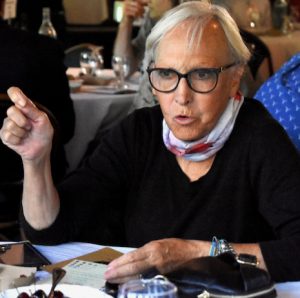
S5 Ep7 - What does Grassfed Meat Really Mean
Grassfed, grass finished, pasture raised are all terms you see on meat and dairy packages these days. But what do they actually mean? Can they be trusted? Michael Dimock dives into this question with Carrie Balkcom the executive director of the American Grassfed Association. AGA is the nation’s singular independent certification program that confirms livestock are fed only their natural diet for their entire lives.

S5 Ep6 - Deep Connections: Healthy Soil Leads to Healthy Plants, Animals and Humans
Spencer Smith is a self-described soil nerd who has raised livestock his whole life. He believes California is a great place to produce grass-fed beef. His goal as a consultant is to help livestock producers optimize the health of their land in order to ecologically, humanely and profitably manage businesses that deliver healthy food for humans.
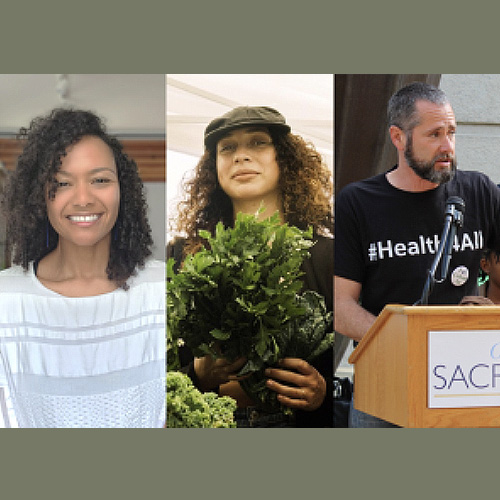
S5 Ep5 - Will California’s Nutrition Incentive Program (CNIP) live on?
Since 2016, California has provided $30 million in matching funds to attract nearly the same amount from the USDA in order to provide SNAP families with matching dollars to support their purchase of healthy fresh and organic produce. Minni Forman, Valeria Velazques Duenas and Shawn Harrison, who manage nutrition incentive programs in their communities, share their work and the impact of both CNIP and the Market Match promotion of incentives offered at over 200 farmers markets and farms stands in California.
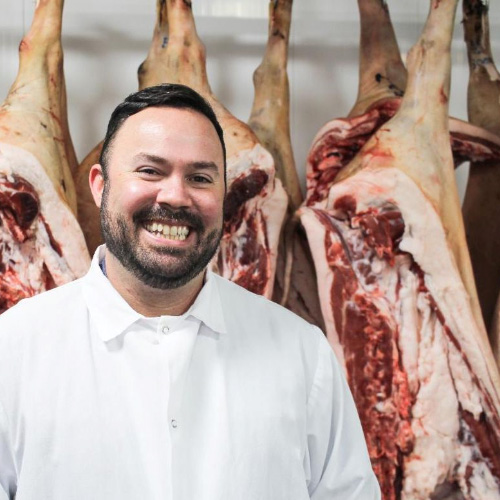
S5 Ep 4 - Providing the Missing Middle Link in Creation of West Coast Regional Regenerative Meat Supply Chains
In the national effort to reanimate local and regional meat supply chains serving primarily organic and regenerative ranchers, the key is a what is known as a “cut and wrap facility.” These are where animal carcasses are skillfully cut into steaks, chops and roasts and ground into burger and hot dogs sought by shoppers, restaurants and cafeteria food providers. Cream Co, founded by Cliff Pollard, fills this vital niche on the nation’s west coast.
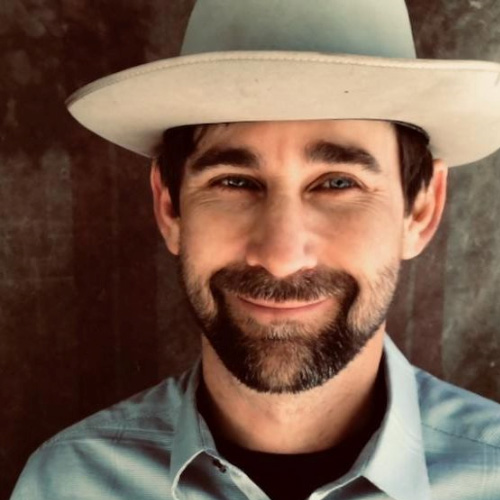
S5 Ep 3 - Jacob Katz, Senior Scientist for the Nonprofit California Trout, Describes how Flexible Farmers are a Solution to Major Endangered Species Problems.
California has declared that species diversity is a major environmental goal. After 150 years of intensive agriculture, achieving that goal is a challenge, but there is a great example underway on the Sacramento River where endangered salmon are being saved by proactive rice farmers. Learn about the Nigiri Project to see an approach that has implications for crop and livestock operations across the state and the nation.
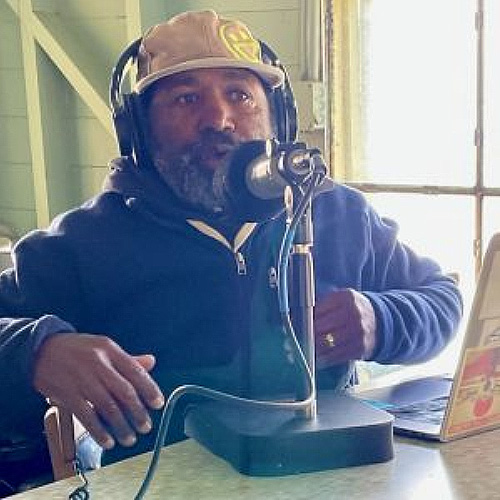
S5 Ep2 – Leonard Diggs and the Regenerator Project on cultivating the next generation of women and BIPOC farmers and ranchers
We need more farmers and many of them must be women, Black, Indigenous and other people of color in order to sustain the nation’s food abundance and heal the wounds of the nation’s persistent racism. After a 35-year farming career, Leonard Diggs, a Black farmer from California’s Great Central Valley, is fully engaged in supporting the emergence of that healing generation of new farmers.
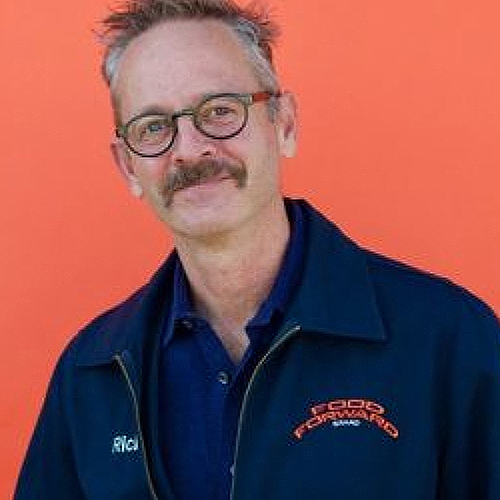
S5 Ep 1 – Food Recovery at Scale: Rick Nahmias on the Birth and Growth of Food Forward
Food justice and climate change demand an end to good waste. Food Forward in Los Angeles is the most impressive food recovery program we’ve ever seen. Founder Rick Nahmias shares the story of how he and his team have delivered over 1 billion servings of food to 150,000 people per day.
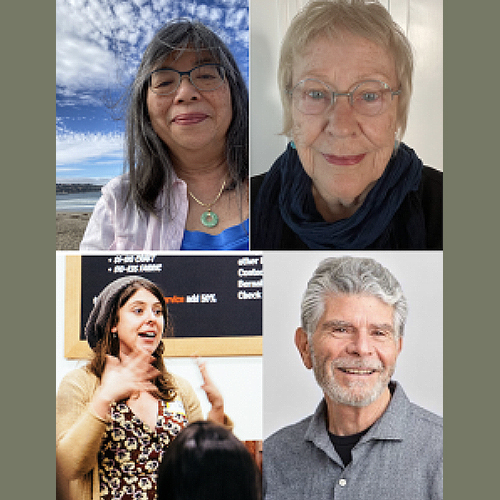
S4 Ep 12 - A Look Back at the Roots of Change story in its 20th year of existence
Hear PHI's Michael Dimock's conversation with four individuals who have been instrumental in the formation and evolution of ROC. It is a reflection on why the organization was created, what has worked, what has not and what the organization hopes might transpire with ROC and the larger movement to transform the food system into an engine for solving a host of challenges faced in this century.
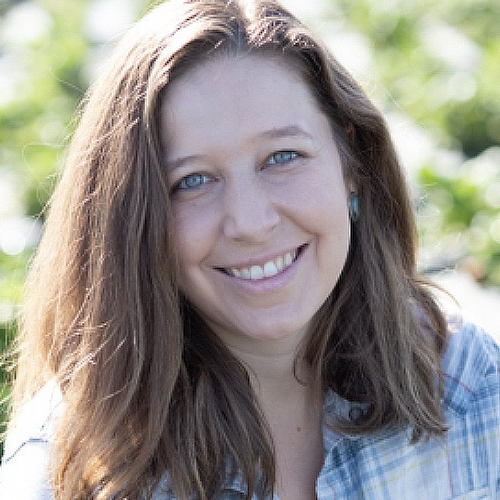
S4 Ep 11 - Update on the Achieving of Resilient Communities project and more with Maureen McGuire, CEO of Ventura County Farm Bureau
After talking about the day’s farm tour on the Oxnard plain of Ventura County to educate CalPolySLO engineering students working to keep drinking water cool for farmer workers in hot fields, Maureen and Michael explore how to solve the many complex challenges faced by farmers in a time of intense political polarization, climate change and escalating prices.
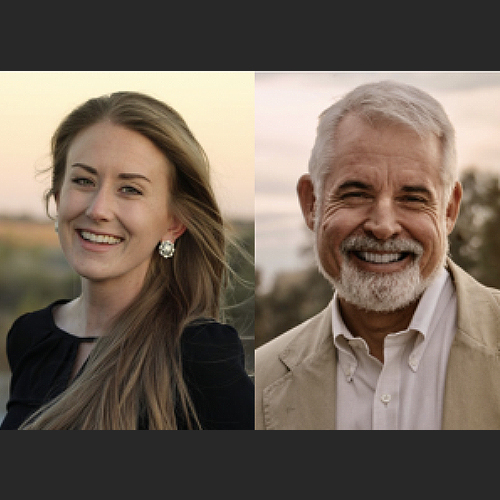
S4 Ep 10 - How Siskiyou County might save good ranches and healthy meat in the age of industrial concentration and climate change
You have probably heard how challenging it is to keep a farm or ranch alive in today’s industrial food system. Low prices, high barriers to market entry and climate impacts are killing off the family ranches that are the primary sources of meat. Big corporations are capturing the vast majority of the wealth and impoverishing rural communities. Hear about one attempt to turn the tide in one of the most rural regions of California, which is home to many good people and beautiful ranches seeking more direct relationship to urban eaters.
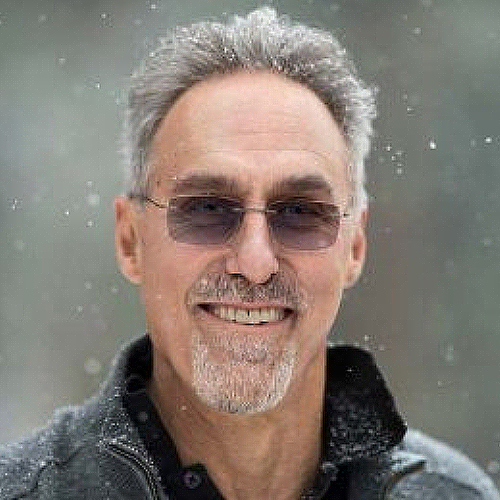
S4 Ep 9 - Woody Tasch, Slow Money and a Call to Farms
Perhaps no one has spoken so clearly about the problem of capitalism and its impact on our food system as Woody Tasch. He is the founder of the Slow Money Institute and the movement it supports. Hear about his latest written statement, A Call to Farms and the Beet Coin initiative launching on September 11, 2022.
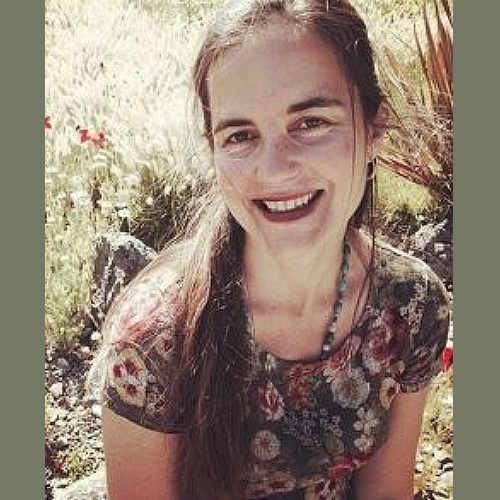
S4 Ep 8 - Carmen Snyder on the nation’s first Farm Trails map and promotor of local small family farms
Resilience requires access to local food. One model of how to sustain and promote local farms is Sonoma County Farm Trails. Launched in 1973, it is the nation’s first community-based organization with such a mission. Carmen Snyder, executive director, shares its story and about its upcoming event: the Gravenstein Apple Fair.
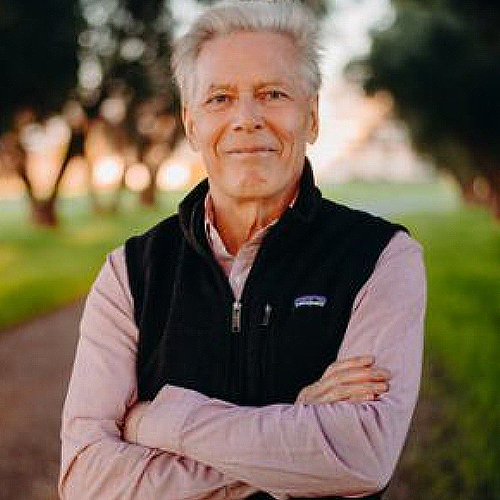
S4 Ep 7 – Regenerative farmer Craig McNamara, son of Robert S McNamara, architect of the Vietnam War
Craig shares his dramatic life journey from the JFK White House to a farm near UC Davis, the challenge of loving a complex father and how his farm brought healing inside and with the Vietnamese people.
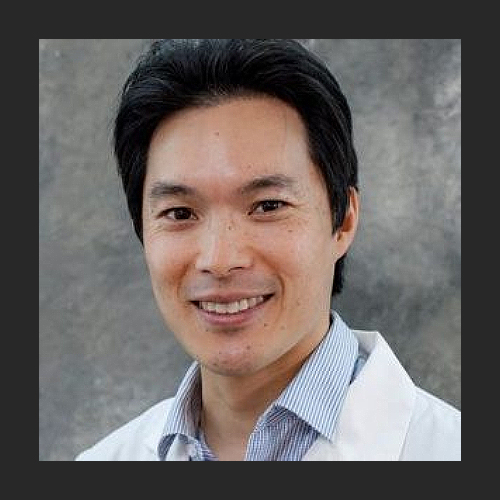
S4 Ep 6 – Dr. Steven Chen on food as medicine and the future
The healing power of food has long been recognized by indigenous cultures and through much of human history. Yet only recently has modern western medicine begun to return to food as healing agent. Diet related disease and other factors ignited this change. Dr. Steven Chen from Alameda County's health system describes how produce prescriptions and medically tailored meals are moving front and center in the effort to heal our communities and create health equity.
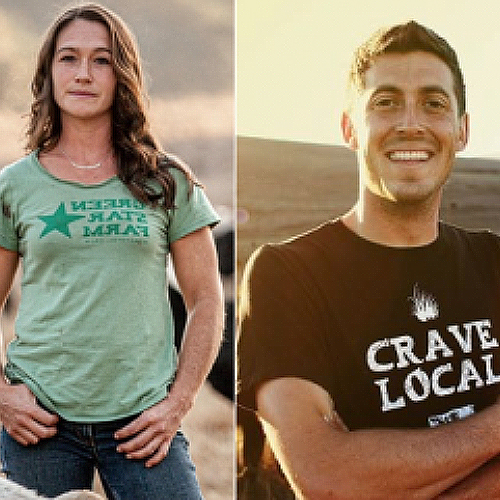
S4 Ep 5 – Two Young Regenerative Meat Producers Share Their Challenges and Solutions
Guido Frosini and Sarah Silva, members of the Bay Area Ranchers Cooperative, tell us what production and processing challenges they face and how they are solving these challenges even amidst global warming.
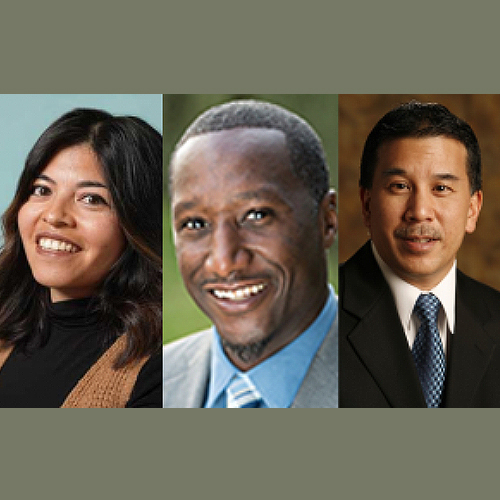
S4 Ep 4 – Three social justice leaders share their views on the struggle for Health Equity and Racial Justice Fund
Community food projects and much more would be funded if we can place the Health Equity and Social Justice Fund in the California Budget. Mar Velez, Rod Lew and Ron Coleman, three veteran policy campaigners leading the charge, describe the fund, its uses and how we plan to win the Governor’s support.

S4 Ep 3 – Let’s Feed LA County team reveals the power of community based organizations in our challenging age
Pandemic, heat waves, fires and storms demand robust public health infrastructure that includes networks of well resourced community based organizations (CBOs). The Let’s Feed LA County program that included 19 local organizations, Roots of Change, Center for Wellness and Nutrition and Wholesome Wave makes clear the need to permanently invest in CBOs on the frontline so they are ready when things get tough.
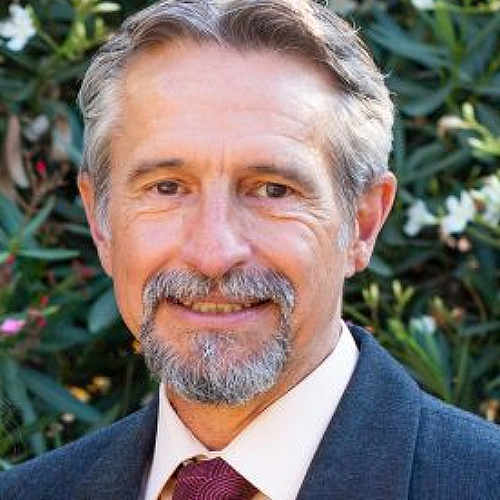
S4 Ep 2 – Protecting Farmworkers by Achieving Resilient Communities. Part II with John Krist
Michael talks with John Krist, retired CEO of Ventura County Farm Bureau, about the need and challenge of protecting farmworkers.
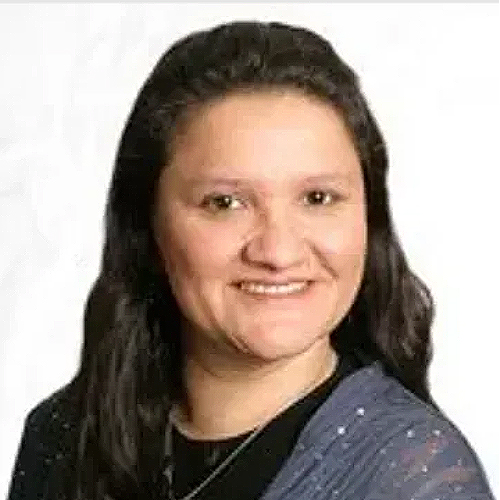
S4 Ep 1 – The ARC (Achieving Resilient Communities) project. Part I with Maricela Morales of CAUSE. January 18, 2022.
A conversation with Maricela about the Achieving Resilient Communities project and her work with Central Coast Alliance for Sustainable Economy. Maricela is a social justice warrior and the project is a core initiative of Roots of Change and its partners at the Public Health Institute.
About the Podcast
 PHI’s Roots of Change’s (ROC) collaborative network of organizations, businesses and governments hopes to make regenerative agriculture and healthy food accessible to all people including individuals, community-based organizations, food producers and businesses, advocating nonprofits, government agencies and more. ROC is committed to improving our culture’s understanding of our food system from field to table, its production systems and markets, and the policies that guide its function. Listen on Spotify, Apple Podcasts or Stitcher.
PHI’s Roots of Change’s (ROC) collaborative network of organizations, businesses and governments hopes to make regenerative agriculture and healthy food accessible to all people including individuals, community-based organizations, food producers and businesses, advocating nonprofits, government agencies and more. ROC is committed to improving our culture’s understanding of our food system from field to table, its production systems and markets, and the policies that guide its function. Listen on Spotify, Apple Podcasts or Stitcher.
Host: Michael Reid Dimock is the program director of Roots of Change at the Public Health Institute. From a leadership role in the global Slow Food Movement to leadership of winning policy campaigns, for two decades he has led catalytic work to transform thinking and laws governing our production of food and management of farms. He serves on the advisory board of the UCLA Law School’s Resnick Food Law and Policy Program as well as the nonprofit boards of Farm to Pantry and the Wild Farm Alliance. Author Katrina Fried and Photographer Paul Mobley feature Michael in their book Everyday Heroes: 50 Americans Changing The World. His global network of allies and social media followers links 140,000 individuals and organizations.
Producer: Courtney Grace is a sound designer, vocalist, and music producer based in the San Francisco Bay Area. She studied Sound Design at San Francisco State University and started her music and sound business, Courtney Grace Music and Sound in 2015. She has worked on several podcasts, films, and songs, and has worked on projects with Google and Skywalker Sound. Aside from work, she is very passionate about social justice issues, video editing, graphic design, and enjoys healthy foods and adventurous hikes in nature.
Originally published by Roots of Change
Work With Us
You change the world. We do the rest. Explore fiscal sponsorship at PHI.
Support Us
Together, we can accelerate our response to public health’s most critical issues.
Find Employment
Begin your career at the Public Health Institute.
